
OR
#OPINION

Since the early 1900s, trade unions in Nepal have been actively promoting the rights of laborers. But labor union activity was not legally recognized or safeguarded until the democratic system was restored in 1990. One of the essential rights granted by the 2007 Interim Constitution is the ability to join trade unions and participate in collective bargaining. Although trade union rights are purportedly supported by the legislative framework, their execution has been plagued by contradictions and gaps. The Labor Act of 2017 sought to reform labor regulations and bring them into compliance with worldwide norms by replacing the obsolete Labor Act of 1992. Nonetheless, labor unions are now open to exploitation and repression due to loopholes in enforcement and interpretation.
The ambiguity surrounding the legal status and powers of trade unions in Nepal is one of their biggest problems. It is challenging for unions to organize and run efficiently due to the Labour Act's ambiguous language and administrative roadblocks. Trade unionists are also unclear and confused because of the judiciary's uneven interpretation of labor regulations.
The frequency of anti-union actions by businesses and government agencies is another significant problem. It is not unusual to hear reports of intimidation, harassment, and even acts of violence directed at union officials and members. In addition, limitations on the ability to collectively negotiate and strike weaken trade unions' negotiating position and maintain the existing power disparity in labor relations. All parties involved must work together to resolve the confusion in Nepal's legal system with relation to labor union rights. Trade unions' rights must be strengthened and clarified through legislative reforms for them to continue operating freely and successfully. Strong enforcement procedures and judicial supervision are also necessary to hold authorities and employers responsible for labor rights breaches.
Building a more inclusive and fair work environment also requires businesses, trade unions, and the government to cultivate a culture of communication and collaboration. Nepal can lead the way toward a more affluent and peaceful society by acknowledging the significance of trade unions in improving workers' rights and promoting social justice.
It is stated in Article 23 of the 1948 Universal Declaration of Human Rights that "Everyone has the right to form and to join trade unions for the protection of his interests". Conventions 87 and 98 of the International Labour Organization (ILO) expand on this right. Through trade unions, employees may collectively negotiate for benefits including safe working conditions, fair pay, and other advantages. This upholds the fundamental human rights ideal of treating workers with respect and gives them a sense of empowerment. Trade union rights continue to be infringed in many nations even after their international recognition. Employees may experience harassment, assault, or limitations on their ability to organize unions. A major international labor law known as Convention 87, addressing Freedom of Association and Protection of the Right to Organize, ensures that employees have the freedom to organize, form trade unions, and participate in collective bargaining. The tabled act has marginalized it since it restricts the scope of the relevant legislation concerning labor rights and trade unions.
The first-ever Presidential Memorandum detailing the Administration's commitment to labor rights worldwide was signed by US President Joe Biden. By doing this, President Biden is giving orders to federal departments and agencies to promote worker empowerment and labor rights while they are working overseas. As the most pro-worker president in history, President Biden is dedicated to creating a sustainable global economy from the middle out and from the bottom up. A few fundamental trade union rights are contained in the European Union's December 2000 adoption of the Charter of Fundamental Rights, which is now Part II of the Treaty establishing a Constitution for Europe. These rights include the freedom of association (Article 12) and the ability to negotiate and conclude collective agreements as well as the right to take collective action (Article 28). The International Trade Union Confederation ITUC defends employees' inalienable right to organize and join the trade unions of their choice without facing reprisals, harassment, or discrimination. It supports laws and regulations that uphold the freedom of association, as guaranteed by global labor norms like the fundamental agreements of the International Labour Organization (ILO). It aggressively fights against abuses of workers' rights and promotes justice and responsibility for those who are exploited, discriminated against, or mistreated. In their attempts to protect their rights and enhance working conditions, it aids labor unions and worker organizations. By supporting democratic institutions, fostering social justice, campaigning for workers' rights, forming alliances, and spreading knowledge, the Nepal Trade Union Congress is crucial in strengthening democracy in Nepal. The NTUC helps to create a more democratic, inclusive, and equitable society in Nepal by promoting these initiatives.
Around the world, trade unions are essential to defending the rights and interests of employees. Although there are legislative measures in Nepal that purport to guarantee trade union rights, their actual application frequently raises concerns. This article explores the subtleties of Nepalese legislation pertaining to trade unions, pointing out areas of uncertainty and difficulties that employees have while trying to exercise their legal rights. And this delves with the function that lawmakers must maintain a low profile when enacting laws that would handle the implications of such laws in the global arena. The focus will be on demonstrating its alignment with global goals, as well as its application and influence in a global context. Since the legislation has not yet been approved, Nepal still has time to improve democratic norms and values by correcting the faulty trade union rights.
You May Like This

NCSEA is against idea of scrapping existing trade unions
KATHMANDU, Feb 18: Nepal Civil Service Employee's Association (NCSEA) on Tuesday warned the government not to scrap the existing trade unions... Read More...
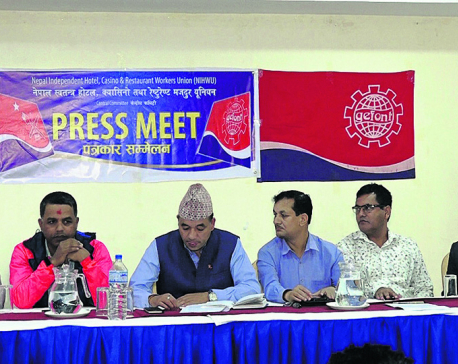
Hotel workers give 21-day ultimatum
KATHMANDU, Oct 1: Hotel, casino and restaurant workers have given a 21-day ultimatum to the government on Monday, demanding the implementation... Read More...
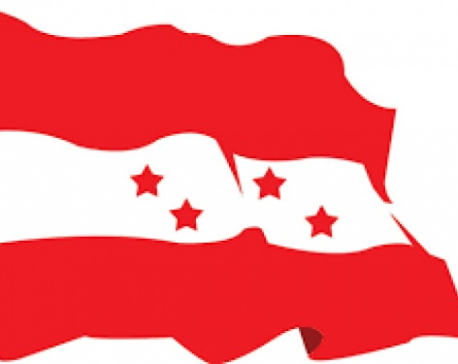
Trade unions could not be banned: NC
KATHMANDU, Aug 8: The main opposition Nepali Congress (NC) has stated that the agenda of banning the trade unions could... Read More...

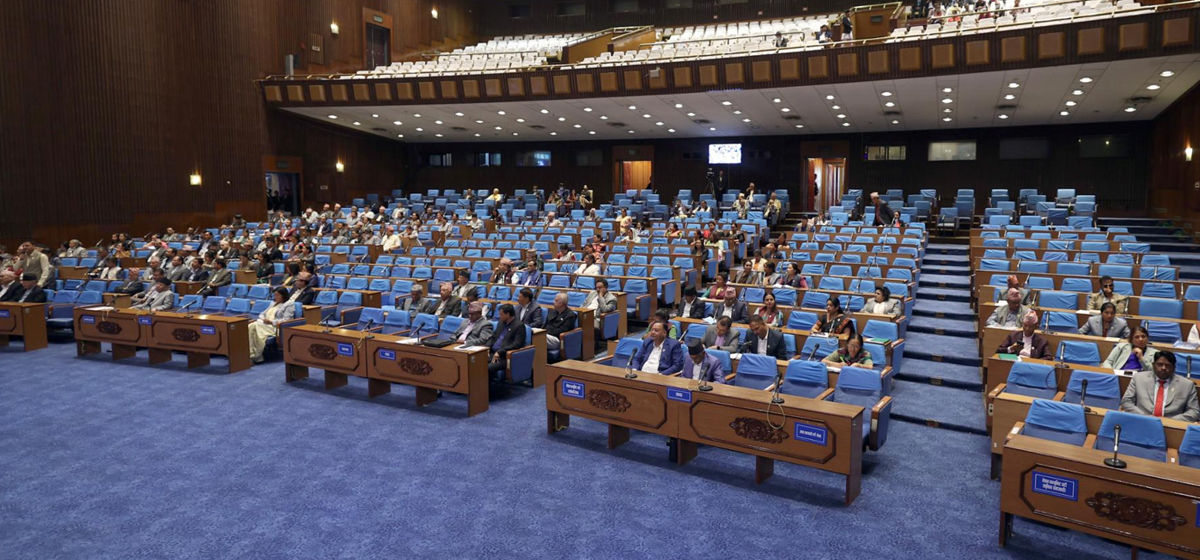
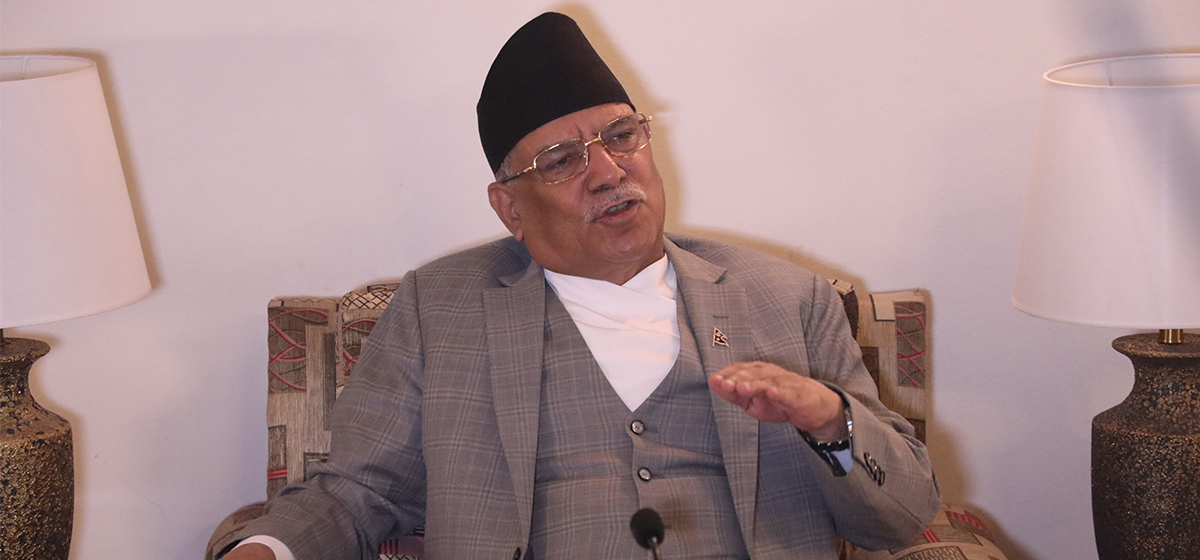

Just In
- Koshi Province govt expansion: Five ministers and two state ministers inducted
- One more arrested in Surkhet firing case
- British Embassy celebrates King Charles III’s birthday
- National Assembly meeting postponed after NC's obstruction
- 11 NSU activists arrested for protesting in front of parliament building
- HoR meeting postponed to Sunday
- PM invites NC for talks amid House deadlock
- New species of bird found in Nepal





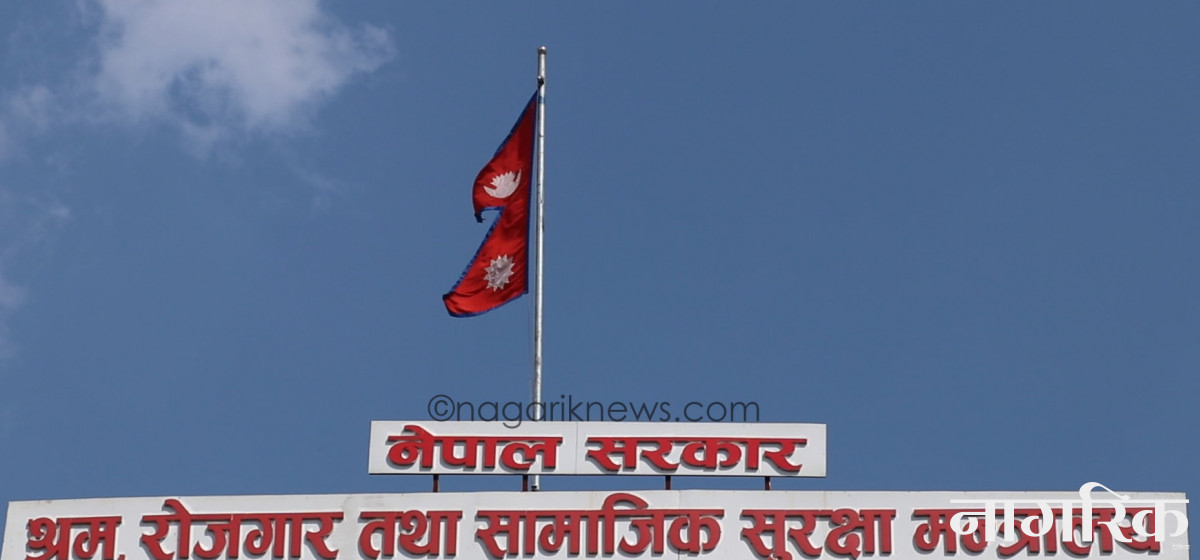
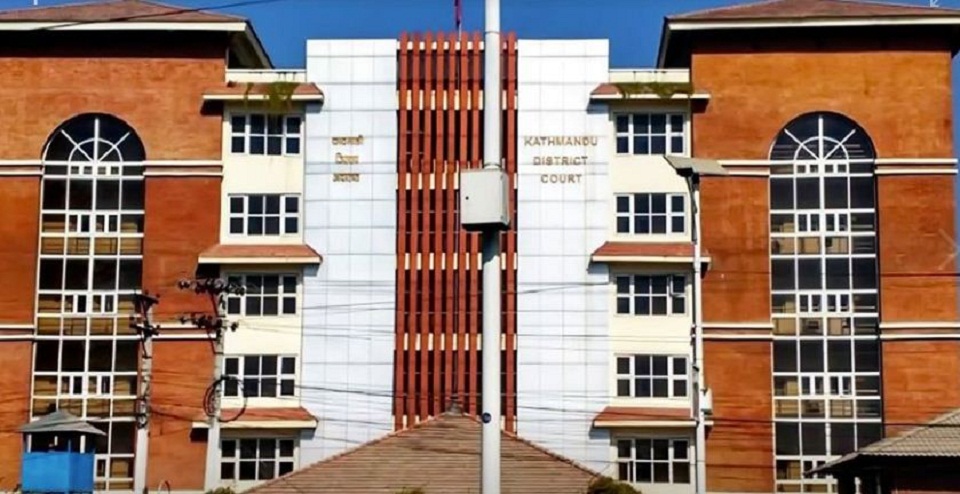

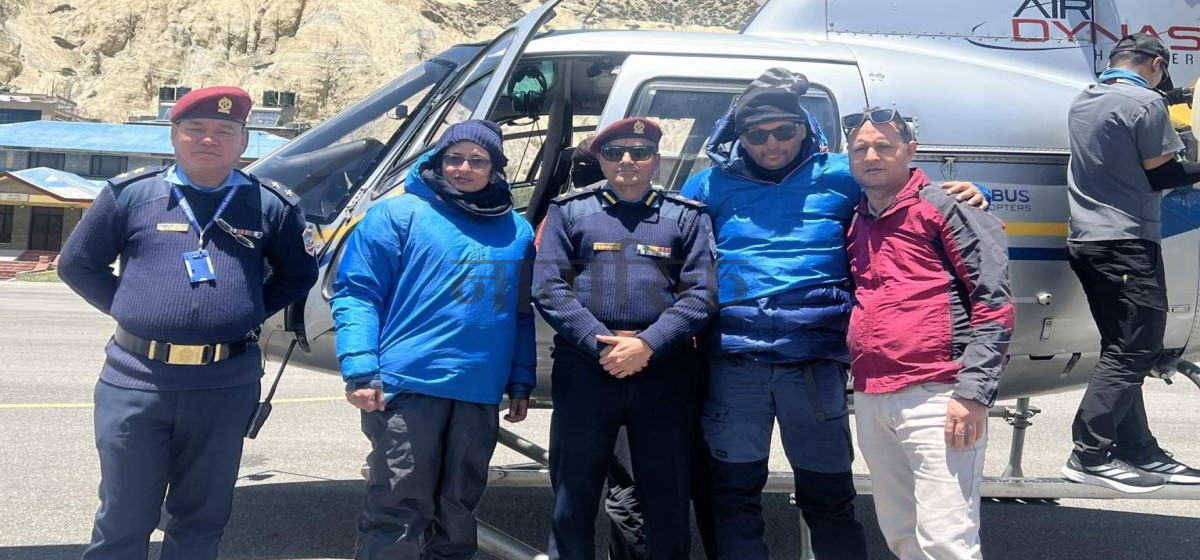

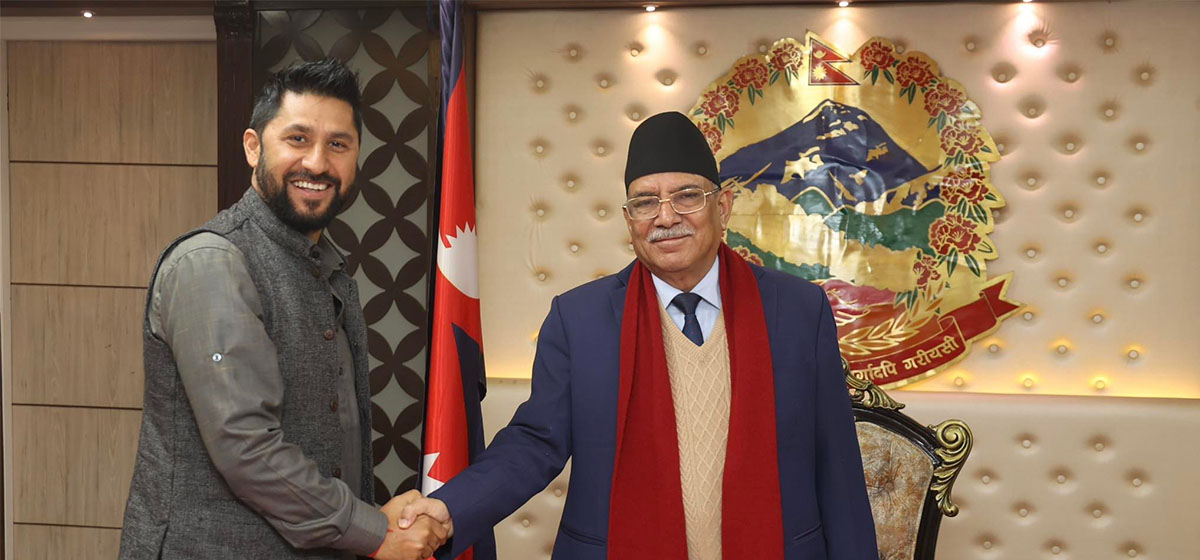
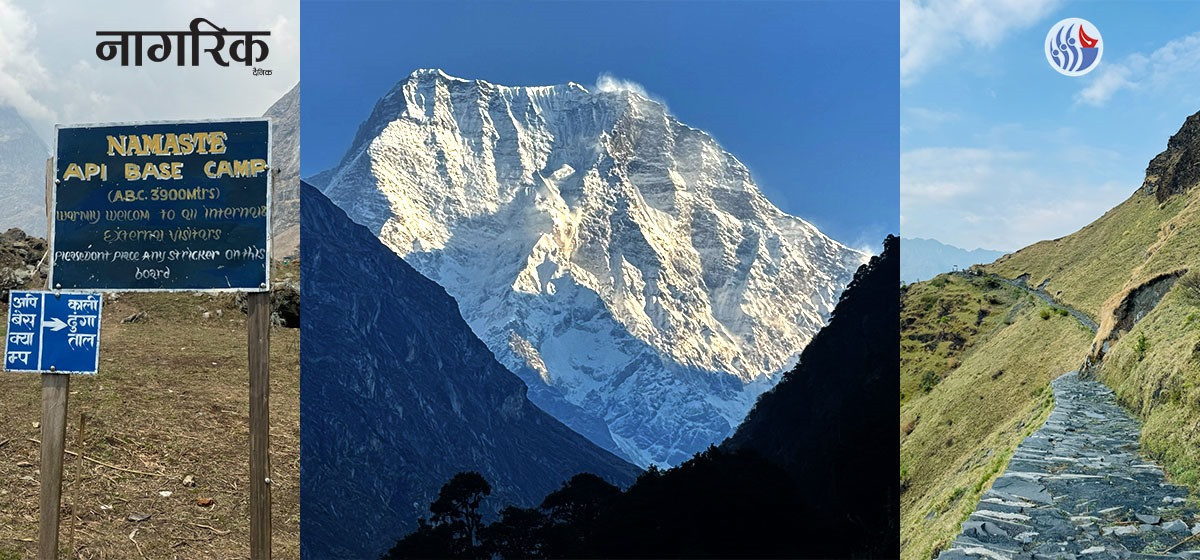

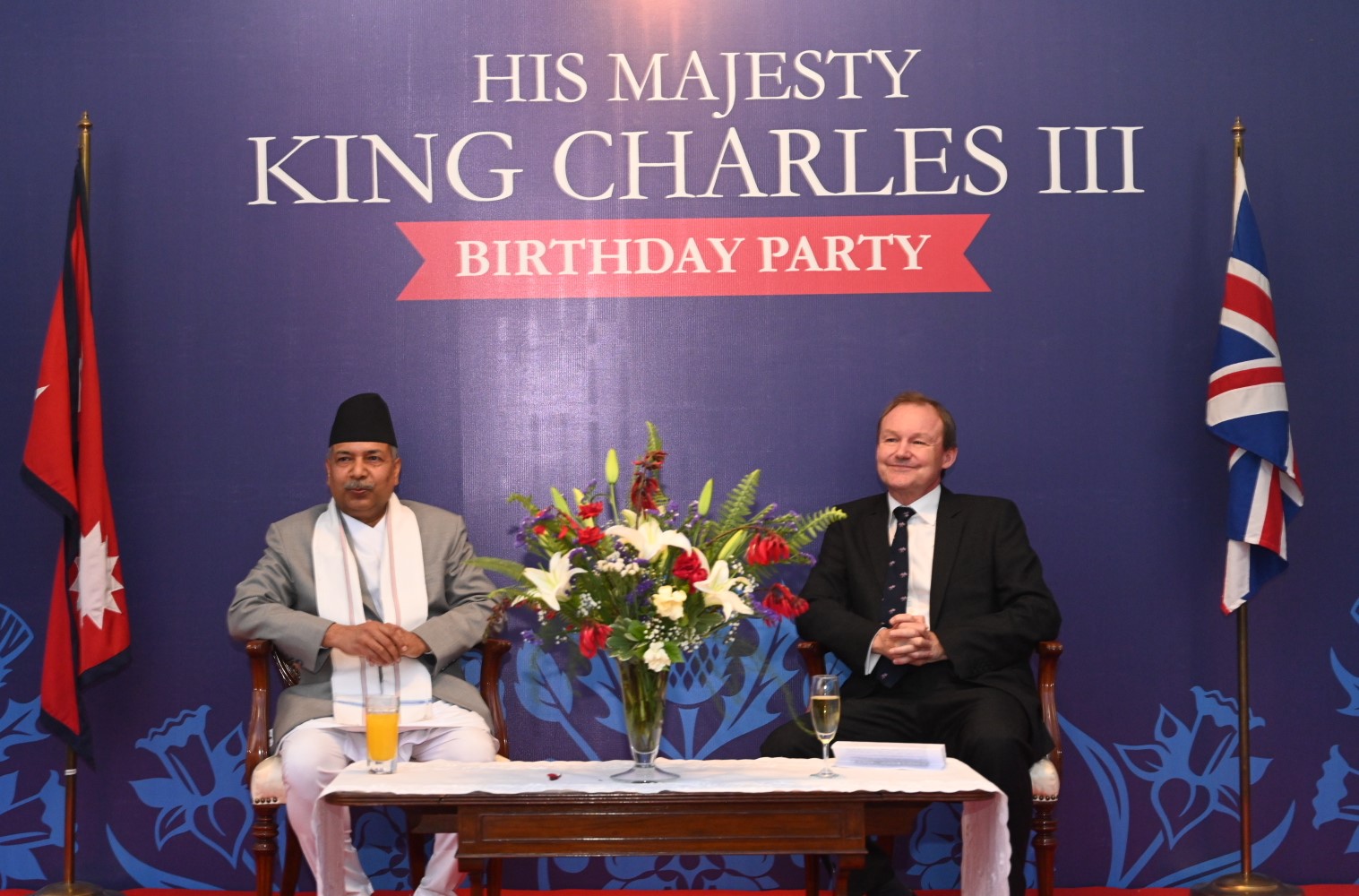
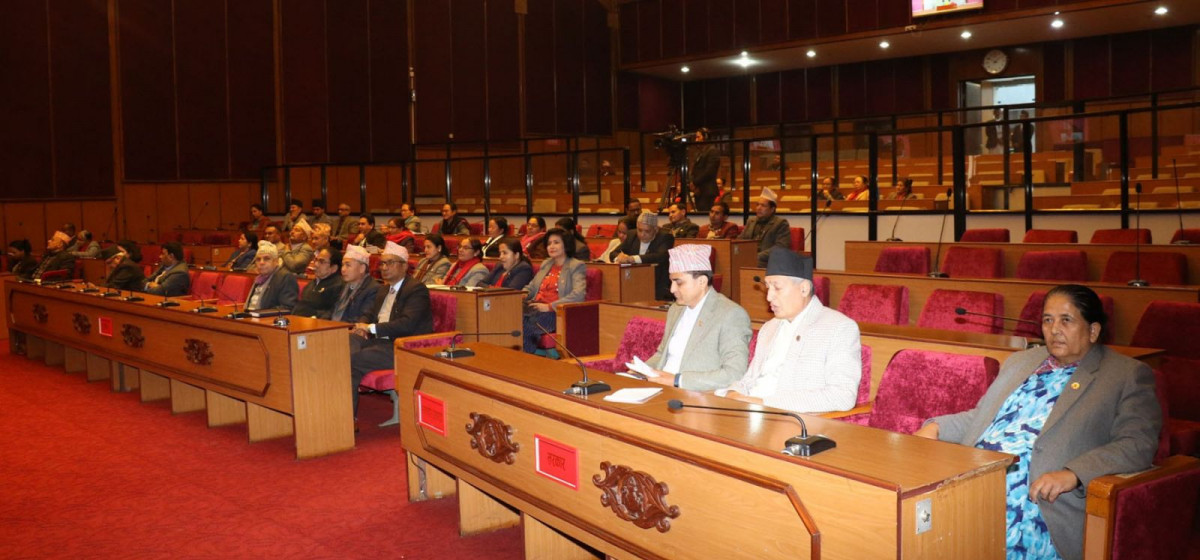
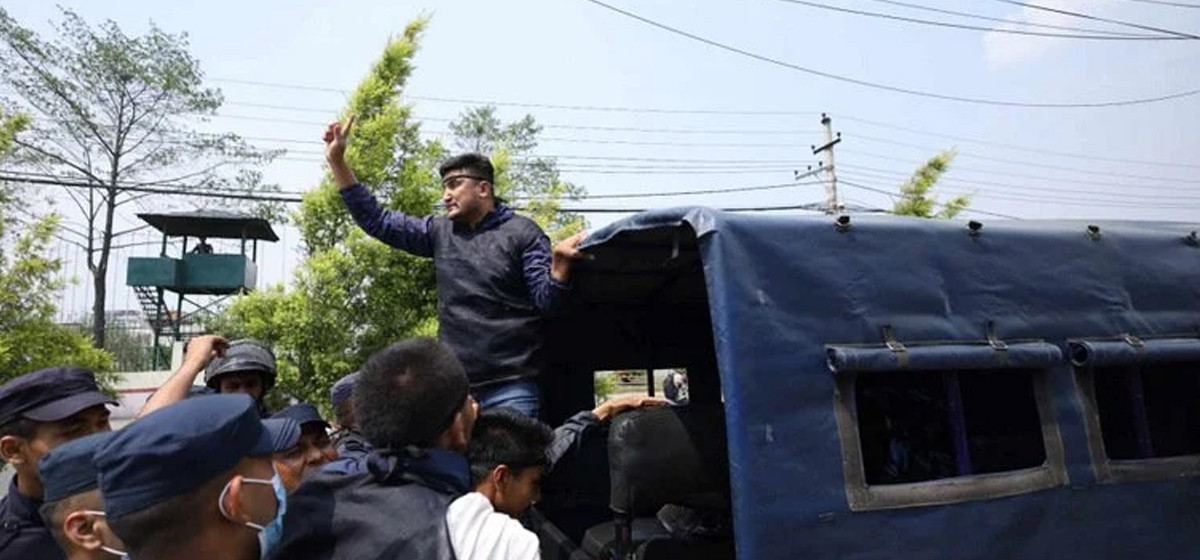
Leave A Comment